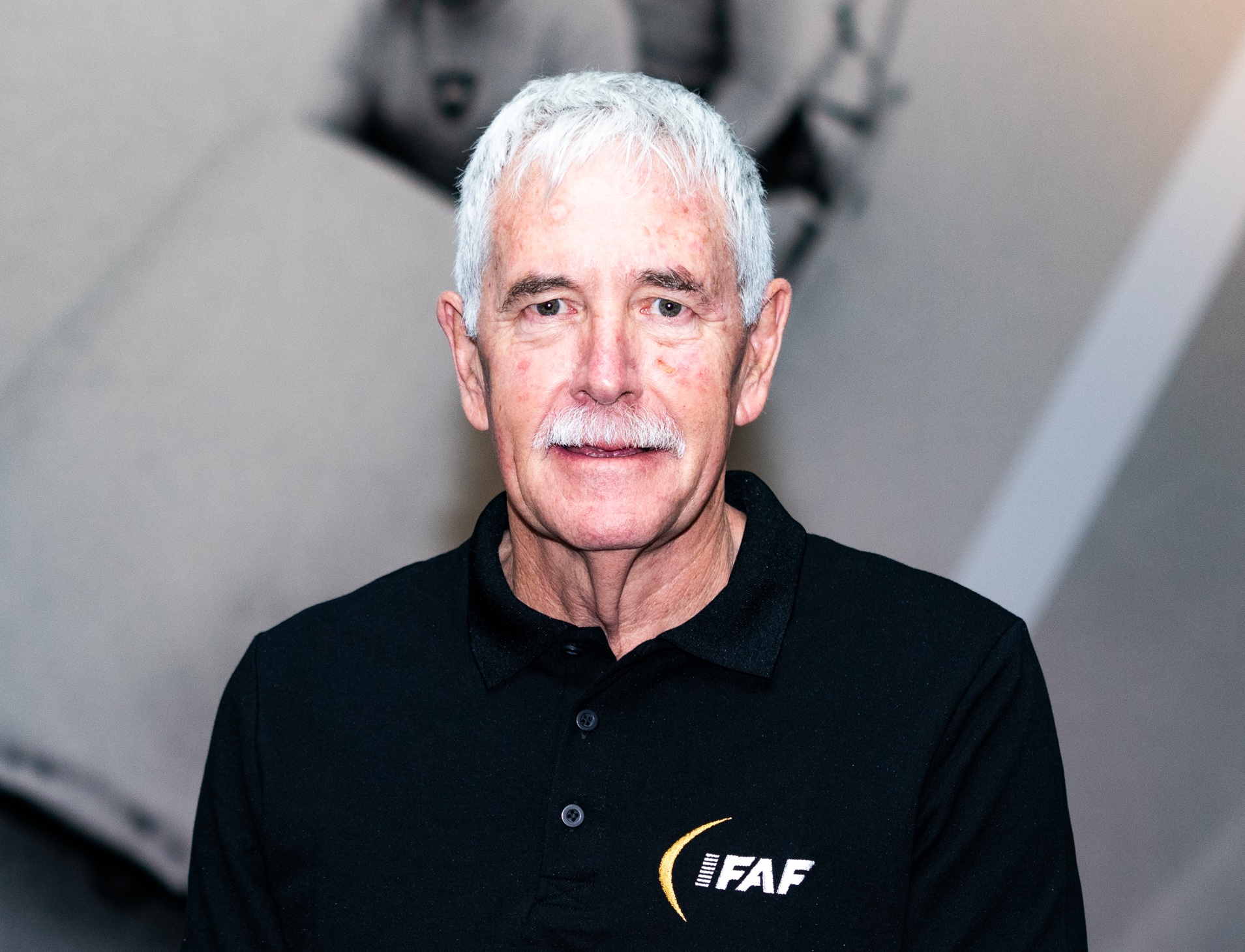IFAF Board Feature: New Zealand’s Russell McConnochie

Russell McConnochie was elected to the IFAF Board of Directors as Director of Development at the 2024 IFAF Congress in Lausanne, Switzerland, having served as IFAF Director for Oceania.
Russell has been involved in sport, participating, coaching and serving on committees and in various club management roles, in New Zealand since 1975.
In 2009 Russell changed from a 25-year career in Corporate IT & T services to a Sport Management role with Water Polo New Zealand. In 2017 Russell was employed by the Zealand American Football Federation (NZAFF) as General Manager with the goal of having the Federation professionally managed and to grow the sport and drive it forward.
The first task was to restructure the Constitution to move to a Governance Board. This has made it easier for new clubs to affiliate, and the inclusion of independent Directors on the Board has brought a wider set of experiences to the table. Russell has created the first strategic plan for NZAFF and implemented standard business practices with budgeting and monthly reports including full financials and implemented a full set of policies and procedures.
When he started at NZAFF in 2017 the player population was ageing and slowly diminishing. There were no initiatives to grow the sport and the other “oval” ball sports and basketball were dominating the player recruitment with offerings at the younger age groups.
Football needed an offering that captured the imagination of young boys and girls before they committed to other sports. Flag Football provided the opportunity to do that. By capturing the young there will be a funnel of players coming into the sport which is essential for the future health of the sport. Russell drove the creation of a robust strategy, recognising the realities of the environment, backed up by practical initiatives aimed at football being delivered into communities.
The strategy started to be delivered in 2018 and included:
- Seeding equipment at schools and in communities recognizing that in order to play the ball needed to be available and the flag sets needed to be different from the other sports that use similar equipment.
- Funding was made available for members and contractors to deliver activities across the country. Club members and sports development groups are paid for their time in delivering Football (mainly Flag) removing the need for NZAFF to retain dedicated delivery people.
- For tackle football the initiatives included providing an equipment subsidy to clubs and individuals to reduce the costs of essential equipment – helmets and pads.
- To help the clubs with their finances the Club Grant initiative was created rewarding clubs for achieving set goals including:
- Player safety reporting where each game played in NZ in competition would have reporting on any injuries.
- Concussion refresher course that has seen more than half New Zealand’s players completing the course with 100% pass rates.
- Other initiatives have focussed on the growth of women and girls in the sport and the development of Officials.
Th results of these initiatives has resulted in a greater level of activity across the country at grassroots level which in return has grown the numbers involved in the sport.
Growth of the sport in New Zealand Football saw more than 1,500 registered players in the 2023/24 season with 20% being female, compared with approximately 750 players mostly playing tackle football and mostly male at the beginning of his tenure in 2017.
Deliveries into schools and communities have added approximately a further 5,000 participants and New Zealand had a target of 10,000 players by 2028, which will be exceeded in the next two years. In 2017 there were 12 clubs nationwide. Currently there are 21 affiliated clubs.
Flag Football is driving the sport’s growth in New Zealand, an indication being the Flag Nationals. In 2018 there were men’s 5 teams participating, which has since risen to 40, including 21 men’s teams, 8 women’s teams, 8 youth teams, and 4 Masters teams.
Russell has demonstrated his ability to think strategically while recognizing the practicalities of a small, “challenger” sport, and to be able to drive initiatives that have grown Football in New Zealand.